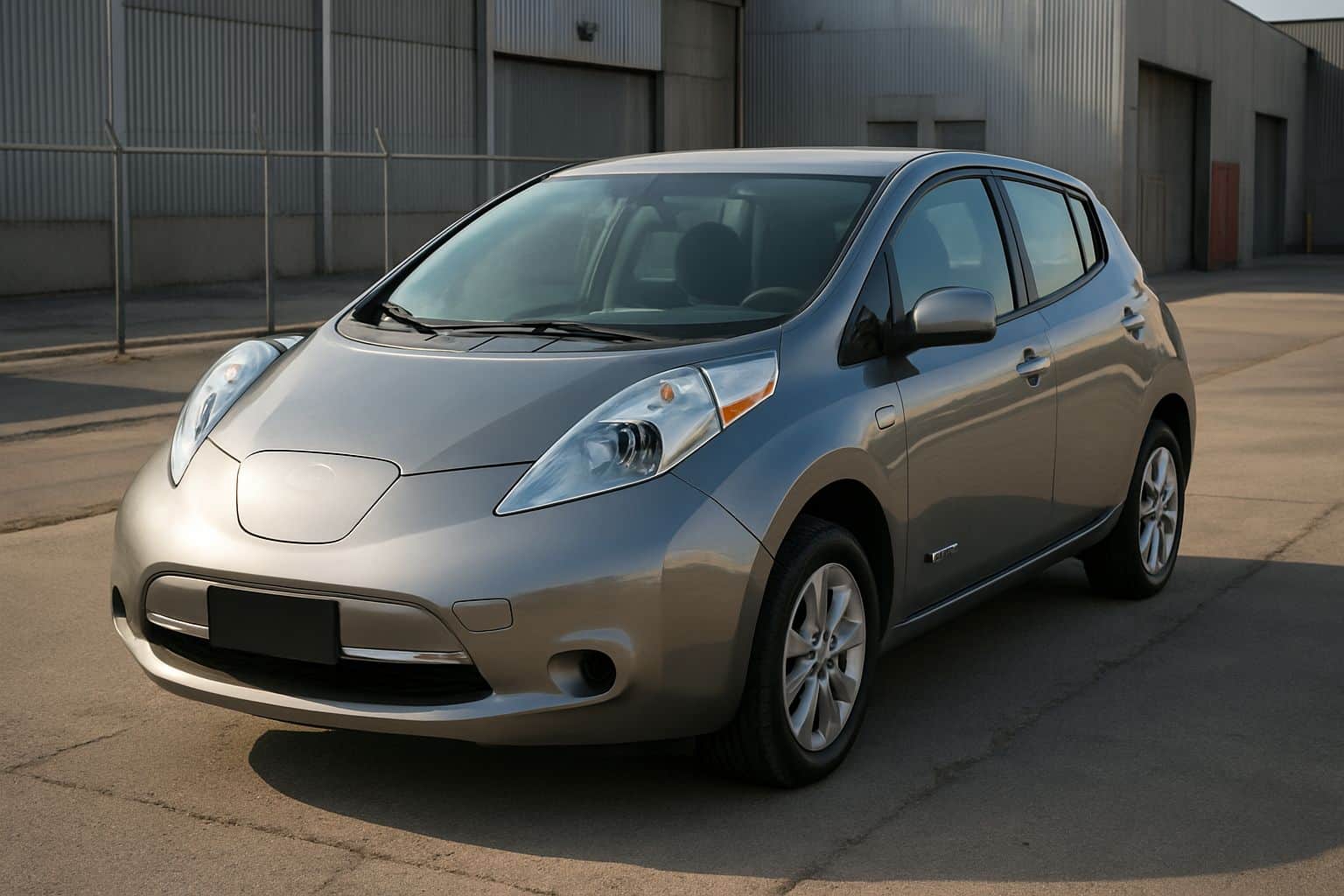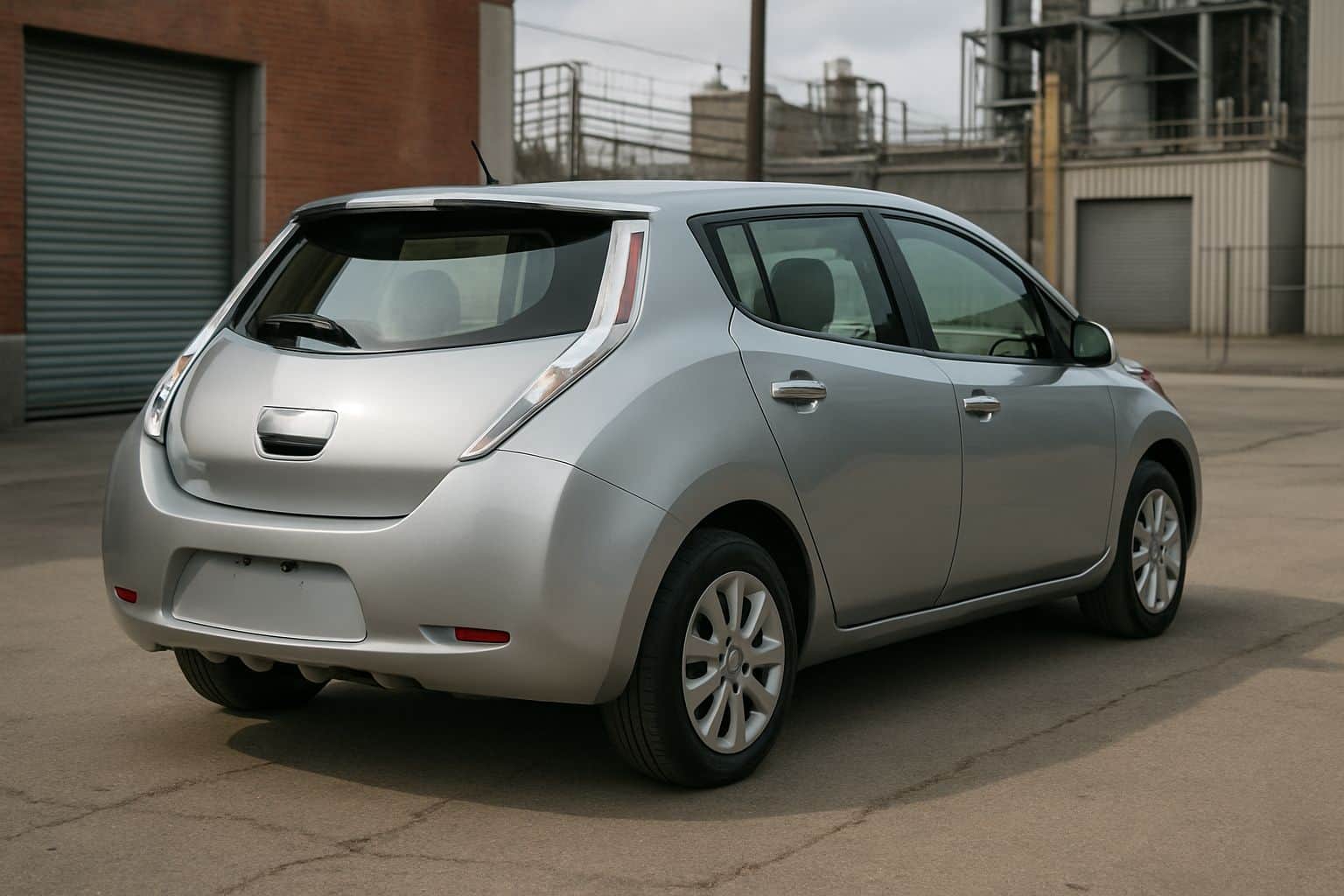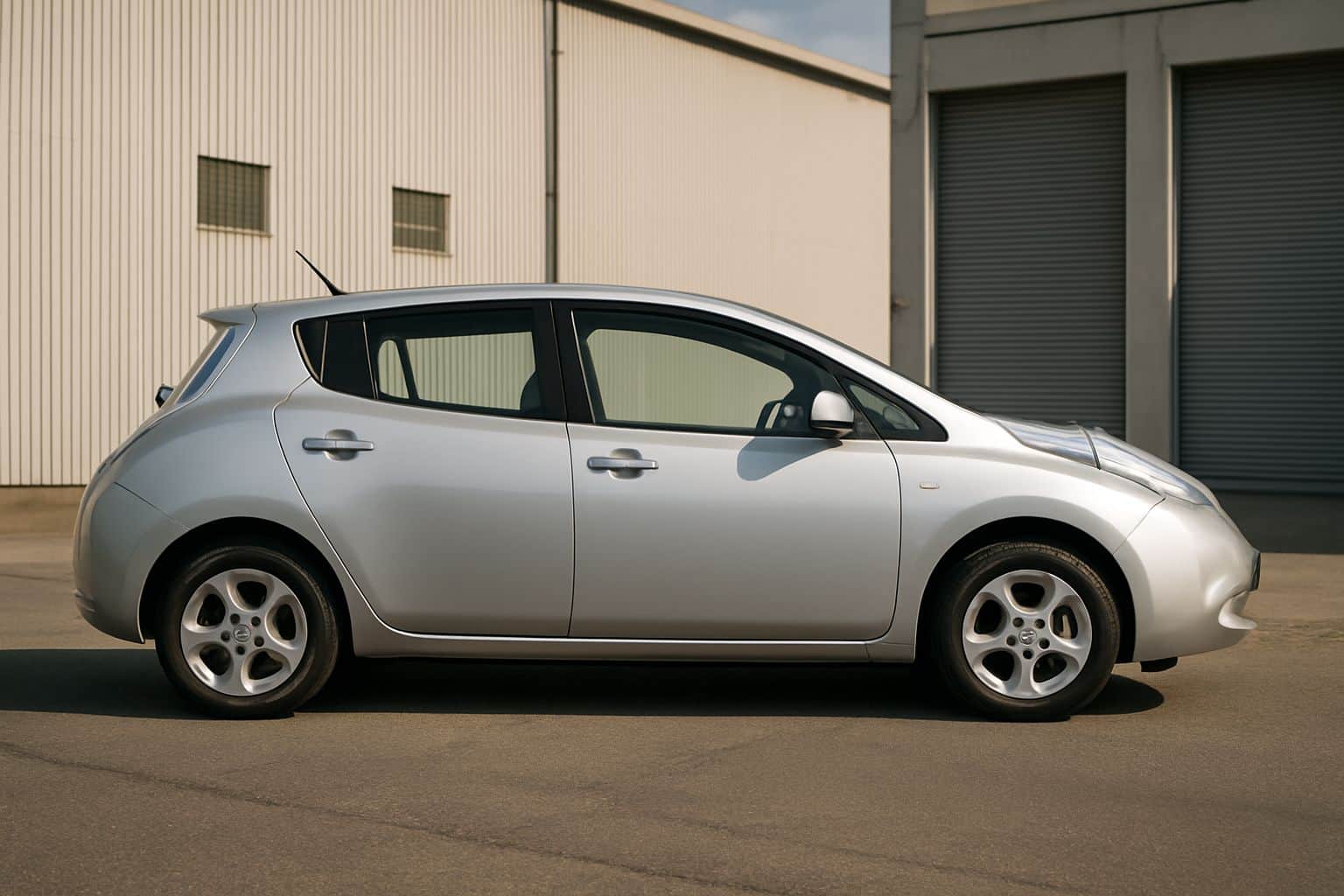


Nissan Leaf (2011 - 2018) Review
Expert review with performance specs, running costs, and finance options.
Remember when electric cars were just a sci-fi dream? Well, the Nissan Leaf is here to prove that the future is now! This retro icon has been reborn, blending eco-friendly tech with a dash of nostalgia, making it the perfect choice for budget-conscious commuters looking to make a statement.
Pros
Impressive electric range and efficiency
Low running and maintenance costs
Advanced safety features and technology
Cons
Limited boot space compared to some rivals
Charging infrastructure can be inconsistent in rural areas
Performance may lag behind some petrol alternatives on long journeys
Experts Review
Explore what top automotive experts from AutoCar, Parkers & WhatCar say about the Nissan Leaf (2011 - 2018). Get key insights on performance, design, practicality, and overall verdict from trusted review sources.
| Source | Expert Summary |
|---|---|
| AutoCar | The design of the Nissan Leaf is distinctive, with a futuristic look that divides opinion. While some appreciate its unique styling, others find it less appealing than traditional hatchbacks. The interior is functional but lacks the premium feel found in competitors. Overall, it’s practical but not universally loved. |
| Parkers | The Nissan Leaf (2011-2018) is praised for its practicality, spacious interior, and low running costs. However, some critics note that its range can be limiting compared to newer electric vehicles, and the driving experience is not as engaging as some rivals. Overall, it remains a solid choice for urban driving. Read owner reviews of the Nissan Leaf on Parkers. |
| WhatCar | Reliability for the Nissan Leaf is generally good, with few major issues reported. Owners appreciate the low maintenance costs and the durability of the electric drivetrain. However, battery degradation can be a concern for some, particularly in older models. Overall, it’s a reliable choice for an electric vehicle. |
What’s New & Why It Matters
The Nissan Leaf, a pioneering electric vehicle (EV) that has captured the hearts of eco-conscious drivers since its launch, has undergone significant enhancements from 2011 to 2018. This retro icon reborn electric vehicle now boasts improved battery technology, offering a longer range and faster charging capabilities, making it a more practical choice for everyday use. With its sleek design and advanced features, the Nissan Leaf not only represents a commitment to sustainability but also showcases the evolution of electric mobility. As the automotive industry shifts towards greener alternatives, the Leaf stands out as a symbol of innovation and environmental responsibility, appealing to a new generation of drivers seeking both style and efficiency.
Driving Impressions
B Roads: When tackling B-roads, the Nissan Leaf showcases its agility and stability. The low centre of gravity, due to the battery placement, enhances cornering capabilities, allowing for confident handling on winding roads. The electric vehicle's torque delivery ensures that drivers can navigate inclines and sharp turns with ease. While the Leaf is primarily designed for urban and motorway driving, it still offers a fun and engaging experience on less-travelled routes.
Motorway: On the motorway, the Nissan Leaf performs admirably, offering a comfortable ride with minimal road noise. The electric powertrain delivers a steady flow of power, making overtaking effortless. The Leaf's aerodynamic design aids in reducing drag, contributing to its efficiency at higher speeds. However, drivers should be mindful of the battery range, as sustained high-speed driving can deplete the charge more quickly than in urban settings. Overall, it provides a smooth and enjoyable experience for longer journeys.
Town: Navigating through urban environments in the Nissan Leaf is a delight, thanks to its compact size and responsive handling. The electric motor provides instant torque, allowing for smooth acceleration from a standstill, which is particularly advantageous in stop-and-go traffic. The quiet cabin enhances the driving experience, making it a serene choice for city commuting. Additionally, the regenerative braking system helps to maximise efficiency, allowing drivers to extend their range while contributing to a more sustainable urban landscape.
Ownership Costs
Running Costs: The running costs of the Nissan Leaf are notably lower than those of traditional petrol or diesel vehicles. With fewer moving parts, maintenance is generally less frequent and less expensive. The cost of electricity for charging is significantly lower than fuel prices, making it an economical choice for daily commuting. Additionally, many local authorities offer incentives for electric vehicle owners, such as reduced parking fees and access to charging points.
Charging/Fuel: Charging the Nissan Leaf is a straightforward process, with options for home charging, public charging stations, and rapid chargers. Home charging allows for convenient overnight charging, while public charging networks are expanding, making it easier to find a charge on the go. The Leaf's compatibility with various charging systems ensures that drivers can recharge their vehicles with ease, whether at home or on the road.
Finance: Financing options for the Nissan Leaf are varied, with many dealerships offering competitive rates for electric vehicles. Government grants and incentives for electric vehicle purchases can further reduce the overall cost, making it an attractive option for buyers. Leasing options are also available, allowing drivers to enjoy the benefits of the Leaf without the long-term commitment of ownership.
History Overview
Purpose: The Nissan Leaf was designed to provide an accessible and practical electric vehicle option for the masses, promoting sustainable driving and reducing carbon emissions.
Evolution: Since its inception, the Leaf has evolved significantly, incorporating advancements in battery technology, design, and features, solidifying its position as a leader in the electric vehicle market.
Launch of the first-generation Nissan Leaf
Introduction of the 30 kWh battery option, increasing range
Launch of the second-generation Nissan Leaf with enhanced features
Ratings
performance
3.5
handling
3.0
behind the wheel
3.8
comfort
4.0
running costs
4.5
green credentials
4.0
reliability
4.2
equipment
3.5
safety
3.8
practicality
4.0
Verdict
The Nissan Leaf is a compelling choice for anyone looking to transition to electric driving. With its impressive range, low running costs, and eco-friendly credentials, it stands as a testament to the future of sustainable transport. The combination of practicality, comfort, and advanced technology makes it an ideal vehicle for both urban and suburban lifestyles. For those seeking a reliable and efficient electric vehicle, the Nissan Leaf is highly recommended.